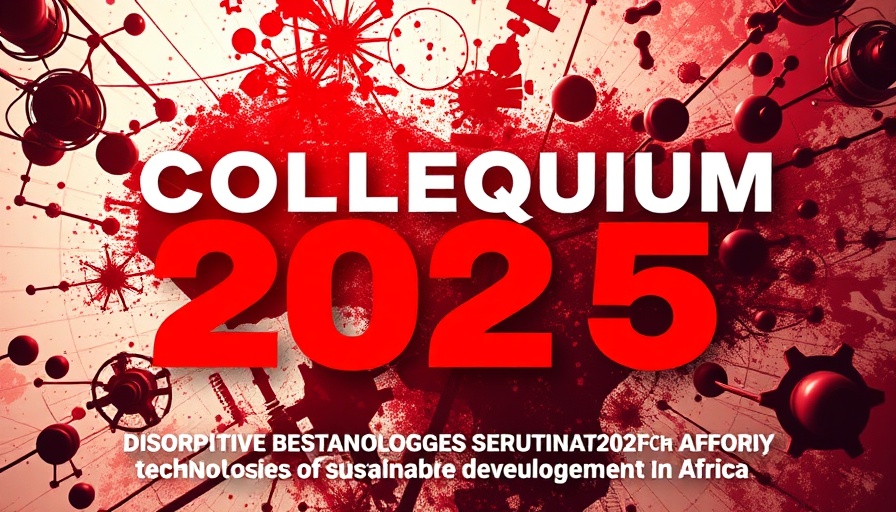
Understanding The Colloquium 2025: A Gateway to Innovation
The Investment Society of the University of Lagos (UNILAG) is making waves with its announcement of “The Colloquium 2025,” an event poised to be a game-changer for Africa's entrepreneurial landscape. Set for July 3rd, this ambitious gathering plans to unite over 3,500 participants, including students, finance professionals, and industry leaders, all focused on the theme of financing the future through innovation.
Shaping Africa’s Future with Collaborative Innovation
This year's colloquium isn't just about discussions, but a chance to reimagine capital beyond traditional measures. Participants will engage in workshops aimed at rethinking strategies—integrating human creativity, social entrepreneurship, and digital innovation to confront emergent challenges. This move aligns perfectly with the rising trend of fintech in Africa, where youth-led innovations are driving economic resilience.
Connectivity: The Core of Opportunity
Networking will play a crucial role at The Colloquium 2025, creating pathways for future collaborations among aspiring entrepreneurs and established professionals. It's a unique platform that encourages the sharing of ideas and resources, making it an essential event for those migrating into the world of fintech, automation, and blockchain. It lays the foundation for fostering connections that can transform concepts into viable businesses, echoing the notable growth of African startups.
The Power of Learning and Growth
Beyond just networking, attendees will have the opportunity to engage with thought leaders and industry experts who can provide insights on pivotal topics ranging from AI ethics in Africa to the latest developments in digital payments. The event will feature hands-on sessions aimed at equipping participants with practical skills needed to navigate the evolving landscape of technology.
Why You Can't Miss This Event
The Colloquium 2025 is more than just a conference; it’s a movement toward the future of work in Africa. With potential investors in attendance and interactive sessions available, participant engagement could very likely pave the way for the continent's next wave of tech disruption. This is an essential experience for those looking to make a difference in their industries.
Join the Revolution
Are you ready to take part in shaping the future? Register for The Colloquium 2025 today and secure your spot among the innovators, finance professionals, and policymakers who are driving change in Africa. This is an incredible chance to learn, connect, and contribute to Africa's tech narrative.
 Add Row
Add Row  Add
Add 


Write A Comment